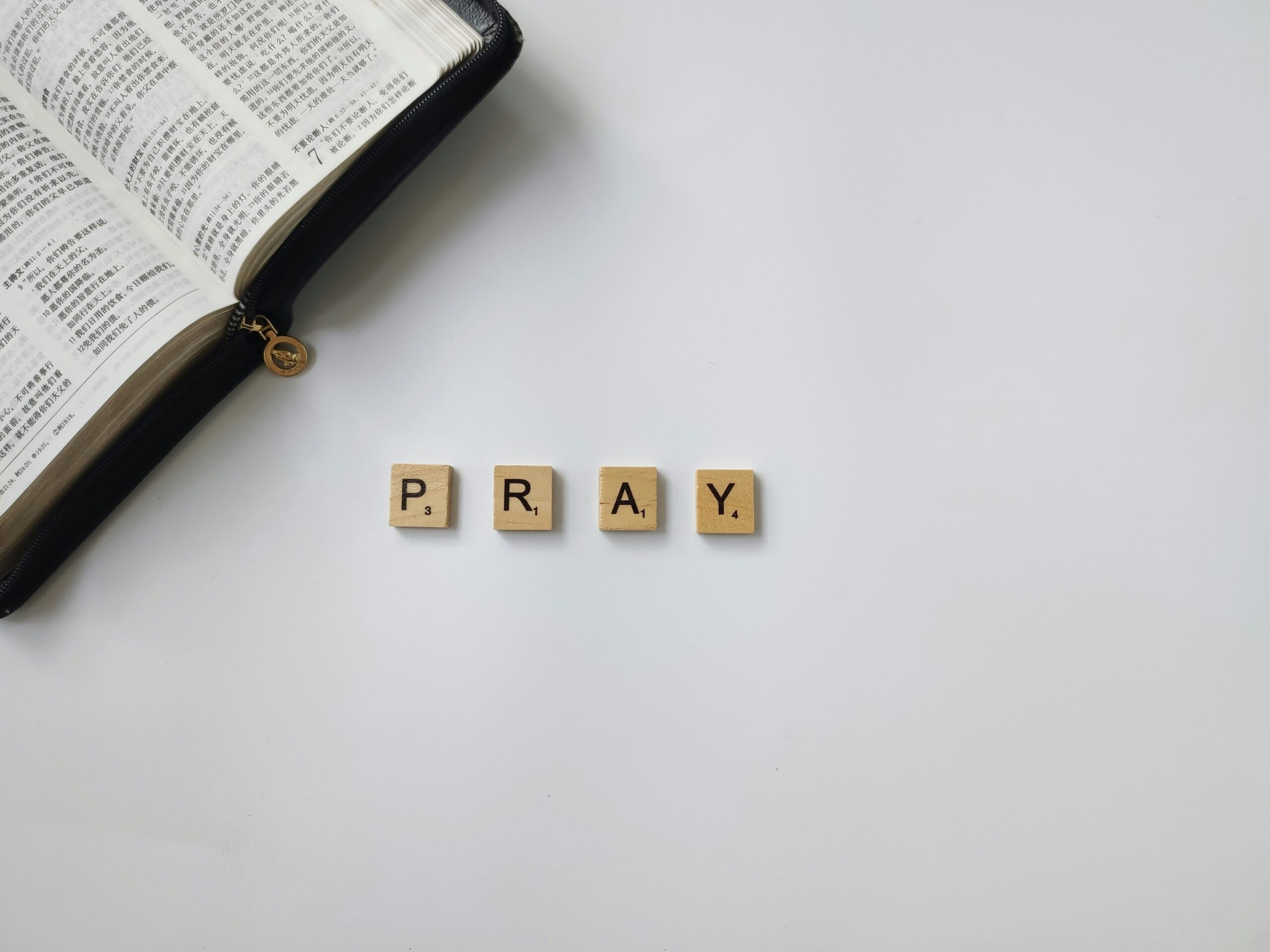Lost Virtues: Forgiveness in a Cut-Off Culture
The virtue we don’t want to talk about but desperately need
Relationships are everything.
At the end of the day, they’re the reason we’re here. (Yes, this is Christian, because our God is a relational Being!) They give life meaning—our friends, family, co-workers, and church family. Life without relationships is just survival. But because we’re human, we mess up. We hurt others—sometimes intentionally, sometimes not. And if we want to keep relationships, or—let me flip it—if we want someone to stay in a relationship with us, then forgiveness is going to be absolutely necessary.
This post is a bit different. I want to be upfront with you: I didn’t want to write this. I didn’t feel qualified, but God challenged me. I’m not coming to you from a place of having mastered forgiveness. I’m coming to you from a place of conviction because we are watching too many relationships fall apart, and we need to talk about this virtue.
The Virtue Framework
In this series, we look at the virtue in the middle and the two vices that surround it—what happens when you have too little and what happens when you take it too far.
- Virtue: Forgiveness
- Deficiency: Vengeance
- Excess: Leniency
Forgiveness is the virtue we’re after. But when we lack it, we fall into bitterness, resentment, and revenge—trying to hurt others the way they’ve hurt us. When we stretch it beyond its true form, we land in leniency—where we tolerate evil or abuse and call it “grace” or “mercy.”
Let’s break this down.
A Culture That Gets It Backwards
We live in a world that’s flipped God’s order on its head. Our culture no longer worships God—it worships the self. And even when forgiveness is talked about, it’s not from a biblical perspective. It’s psychological. It’s individualistic. It sounds like this:
“Forgive for yourself.”
“Let go of bitterness so you can move on.”
“Do it for your own peace.”
Now, is there truth in that? Sure. Bitterness does eat away at the soul. But if that’s the only reason we forgive, we’re missing the point entirely.
Mel Robbins has said this on her “Let Them” book** tour:
“The REAL power of forgiveness is in being able to move on in your mind and heal your heart. It’s for YOU, not the other person.”
THAT IS NOT CHRISTIAN. THAT IS NOT BIBLICAL. THAT IS NOT WHAT JESUS TAUGHT.
** Under NO circumstances am I recommending this book. It’d be like selling my soul to the devil! Fat chance!
Christians are held to a higher standard. We follow the religion of relationships—first with God, then with others. We are called to mend relationships, not destroy them. And Christ gave us the formula:
- Love God.
- Love others.
- Love yourself.
That’s the divine order. Forgiveness, for us, is an act of obedience—not a therapeutic technique.
What Happens When We Don’t Forgive?
The stats say it all:
- 50% of Americans are estranged from a close family member.
- 26% of adult children are estranged from their fathers.
- 60% of divorces are filed under “irreconcilable differences.”
We are a culture of cut-offs.
And it makes sense—because our default human response to pain is vengeance. “Get even.” “Don’t be weak.” “Make them feel what you felt.”
There are types of vengeance, too, and some of them are subtle:
- Passive revenge: Stewing in bitterness. Playing conversations on repeat. Giving the silent treatment.
- Emotional sabotage: Gossip. Character assassination. Ruining someone’s reputation.
- Financial vengeance: Using divorce settlements to punish. Taking more than what’s fair and calling it justice.
- Physical vengeance: Retaliating. Withholding affection. Even violence.
As Douglas Horton said,
“While seeking revenge, dig two graves—one for yourself.”
The Bible is not silent here. Romans 12:17-20 says:
“Do not repay anyone evil for evil… If your enemy is hungry, feed him. If he is thirsty, give him something to drink… Do not be overcome by evil, but overcome evil with good.”
We are not called to be reactionary people. We are called to be redemptive people.
When Forgiveness Goes Too Far
Here’s where it gets complicated. Sometimes people confuse forgiveness with leniency.
Leniency looks merciful, but it’s not. It tolerates sin instead of confronting it. It dismisses wrongs instead of acknowledging them. It calls cowardice “grace.”
In the home, this might look like parents never correcting their kids:
“They’ll figure it out.”*
No, they won’t. That’s not discipleship. That’s passivity.
*This is how non-believers parent. Like what is the point of having a parent?!
In relationships, it might look like someone continually wronging you—and you just keep taking it. That’s not forgiveness. That’s permissiveness.
And yes—Jesus told us to forgive 70 x 7 times. But that doesn’t mean we accept abuse. It means we release the debt, not that we never draw boundaries.
God is gracious—but He is not lenient. Sin is always acknowledged, confessed, and dealt with. That’s what real grace looks like.
So What Is Forgiveness?
Forgiveness is releasing someone from a debt.
It’s saying, “I see your imperfection—and I release you.”
Corrie ten Boom, a Holocaust survivor, in her biography, The Hiding Place, said:
“Forgiveness is an act of the will. It’s not natural”
—but it’s possible through the Holy Spirit.”
C.S. Lewis, in Mere Christianity, said it perfectly:
“Everyone thinks forgiveness is a lovely idea—until he has something to forgive.”
So why do we forgive?
Let’s return to the formula:
God > Others > Self
- God: Because God has forgiven us. Completely. Lavishly. Not because we deserved it, but because Christ paid for it.
“Forgive us our debts, as we forgive our debtors.” (Matthew 6:12)
- Others: Because relationships matter. Because the world is falling apart, and we are called to be agents of reconciliation.
- Self: Yes, forgiveness does free you—but that’s not the starting point. It’s the byproduct of obedience.
Jesus said in Matthew 6:14-15:
“If you forgive men their trespasses, your heavenly Father will also forgive you. But if you do not… neither will your Father forgive your trespasses.”
That’s not a threat—it’s a reminder. Forgiveness is not optional for the Christian. It’s essential.
Absolutely. Based on your original carousel and the paragraph draft, here’s an expanded blog section on apologizing and reconciliation, written in your voice and incorporating your Scripture references:
What about Reconciliation?
Here’s a hard truth: Jesus says “Be reconciled.” But forgiveness doesn’t always lead to reconciliation. Forgiveness is something I can give even if the other person never repents. It’s a choice I make before God to release them from the debt they owe me (Matthew 6:12). But reconciliation? That takes two. It can’t happen without humility, without confession, without truth.
That’s why apologizing is so powerful—and so rare. In a culture obsessed with self-justification and vague, non-committal “sorry if you felt hurt” statements, actually naming the harm, taking responsibility, and seeking to make it right is countercultural.
But this is the biblical pattern: “If your brother sins, rebuke him, and if he repents, forgive him” (Luke 17:3). God doesn’t ask us to reconcile with people who refuse to acknowledge wrongdoing. He asks us to be ready, open, willing—but not naïve.
And when someone does repent? That’s when healing can begin. That’s when forgiveness can blossom into something even deeper: restored trust. Not perfectly, and not always quickly. But reconciliation is the fruit of repentance and grace entwined.
TO BE CLEAR: you can forgive without ever speaking to the person again. You can forgive and still say “no” to further relationship. That’s not bitterness; that’s wisdom.
BUT!!! Don’t cop out because it is easy. Christians are held to higher standards. Forgive and be reconciled, because “if he hears you, you have gained your brother.”- Matthew 18:35 Every person is a potential brother and sister in Christ. We are here to bring the lost to Christ. DON’T just cut people off.
When both people bring their hearts to the table—one to forgive, the other to repent—then reconciliation becomes not just possible, but sacred.
Let’s Wrap it Up
We are all going to hurt and be hurt. That’s the cost of real relationship. But forgiveness keeps the door open. It keeps the possibility of reconciliation alive. And it keeps our hearts soft—towards God, towards others, and even towards ourselves.
Let’s not be vengeful. Let’s not be lenient.
Let’s be forgiving—the way Christ forgave us.
Stay Salty Christians 😉,
Nefreteri






Read the Comments +